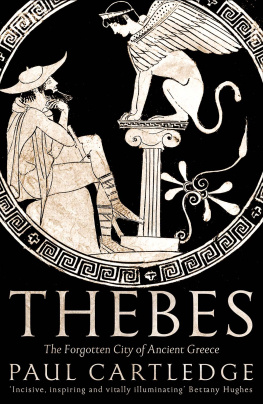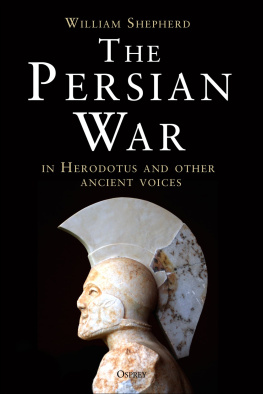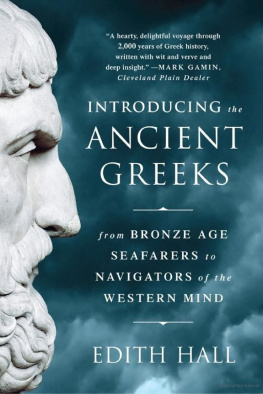CREATORS, CONQUERORS, AND CITIZENS
OTHER BOOKS BY ROBIN WATERFIELD PUBLISHED BY OXFORD UNIVERSITY PRESS
Dividing the Spoils: The War for Alexander the Greats Empire (2011)
Taken at the Flood: The Roman Conquest of Greece (2014)
Translations
Plato: Republic (1993)
Plato: Symposium (1994)
Plato: Gorgias (1994)
Aristotle: Physics (1996)
Herodotus: The Histories (1998)
Plutarch: Greek Lives (1998)
Plutarch: Roman Lives (1999)
The First Philosophers: The Presocratics and the Sophists (2000)
Euripides: Orestes and Other Plays (2001)
Plato: Phaedrus (2002)
Euripides: Heracles and Other Plays (2003)
Plato: Meno and Other Dialogues (2005)
Xenophon: The Expedition of Cyrus (2005)
Plato: Timaeus and Critias (2008)
Polybius: The Histories (2010)
Demosthenes: Selected Speeches (2014)
Lives of the Attic Orators: Texts from Pseudo-Plutarch, Photius, and the Suda (2015)
Plutarch: Hellenistic Lives (2016)
Aristotle: The Art of Rhetoric (2018)

Oxford University Press is a department of the University of Oxford. It furthers the Universitys objective of excellence in research, scholarship, and education by publishing worldwide. Oxford is a registered trade mark of Oxford University Press in the UK and certain other countries.
Published in the United States of America by Oxford University Press
198 Madison Avenue, New York, NY 10016, United States of America.
Robin Waterfield 2018
All rights reserved. No part of this publication may be reproduced, stored in a retrieval system, or transmitted, in any form or by any means, without the prior permission in writing of Oxford University Press, or as expressly permitted by law, by license, or under terms agreed with the appropriate reproduction rights organization. Inquiries concerning reproduction outside the scope of the above should be sent to the Rights Department, Oxford University Press, at the address above.
You must not circulate this work in any other form and you must impose this same condition on any acquirer.
CIP data is on file at the Library of Congress
ISBN 978-0-19-023430-0
eISBN 978-0-19-023432-4
For Kathryn, with love
impossible without you
Contents
Now that Ive got you here Im going to tick you off
For all to hear, and with good reason, because although
At places like Olympia, Thermopylae, and Delphi
(And so on and so forth: Ill keep it short)
You purify altars with the same holy water
As though you were kin, and although the enemy
Is looming with his barbarian horde, it is
Fellow Greeks and their cities that you destroy.
Aristophanes had a good point. Other writers and other events could be adduced to the same effect: the Greeks recognized their kinship and their common culture, but failed to make these shared features a foundation for a common political life. They were culturally one, but politically many.
The primary purpose of this book is to provide an engaging, accessible, and up-to-date history of the ancient Greeks, but exploration of the Greek world very quickly brings one up against this onemany issue. If I were writing the history of ancient Rome or medieval Spain, I would be writing about a single place, but in the ancient world there was no single place called Greece (Hellas to the Greeks, then as now). The land that currently makes up the modern country of Greece was occupied by a large number of peoples, living typically in city-states (that is, towns with their surrounding farmland), and other city-states, equally populated by peoples who called themselves Greeks, were dotted all the way around the coastlines of the Mediterranean and the Black Sea. In the Classical period, there were well over a thousand of these statelets.
When the ancient Greeks spoke of Greece, they meant the abstract sum of all these communities, but in reality there was no shared homeland, and the citizens of each city-state gave their loyalty primarily to the place where they lived: they were Athenians, rather than Syracusans or Spartans. They were divided enough even to go to war with one another, and yet they knew themselves to be, in some sense, a single people. The political cultures of the Greek states play an important part in the book, then, because it was these that motivated them and governed their behavior. The onemany issue is the thread that binds the book together and leads to its concluding chapter.
But my principal aim, as I have said, is to provide a general history of the ancient Greeks. It is time for a new one. Every generation of historians is obliged to revisit old territories and re-examine them in the light of current conceptions, approaches, and information. And the past few decades have seen great progresssometimes of a revolutionary natureattend almost every field of Classical and ancient historical studies. New ways of reading social history from archaeological data have made the so-called Dark Ages less dark, for instance. Survey archaeology, in which walkers systematically transect a given area of land, is revealing more and more about the uses of the countryside. New sites are still being discovered and explored. Environmental history has progressed by leaps and bounds. The use of models, drawn especially from the social sciences, and of comparative data from other societies, has cast new light on what we thought we knew. Increased skepticism about what our ancient sources were writing, and why they were doing so, has brought great changes in its train. The way we see Spartan society, for instance, has changed radically; Alexander the Greats character and achievements have been up for reassessment.
Then again, it used to be acceptable for a history of the Greeks to stop toward the end of the fourth century, as though nothing of political significance happened after they became subject to the Macedonians. In this book, however, roughly equal weight is given to all three of the major periods of ancient Greek history, under their traditional names: Archaic, Classical, and Hellenistic. Actually, I have written just a little less about the Hellenistic period than the other two. The reason for this is that, by then, Greeks were scattered all over Egypt and Asia, as well as the Mediterranean. If I had given these eastern Greeks equal space, the book would have been considerably longer, and we would have lost sight of the mainland Greeks whose history I had largely been telling up to that point. So, even in the Hellenistic period, I have focused on the mainland Greeks a bit more than I have on their eastern or Egyptian peers. The Recommended Reading chapter makes up for this deficiency, as for others.
There is also another kind of imbalance between the three periods of the book. The sources for them are uneven, and necessitate different approaches. For the Archaic period, for which sources are scanty and difficult to interpret, we can talk mainly about general trends rather than specific events, and I have therefore taken the opportunity to illuminate not just the history of the period, but also some of the commonalities of the Greek world, which were laid down in the Archaic period: religion and warfare, for instance, are covered in this section, and return only intermittently thereafter. For the rest, we have sufficient sources (far better for the Classical period than the Hellenistic) to put together a narrative, but in the Hellenistic period the Greek world was so extensive that again it is better from time to time to raise general issues and explore the big picture, as well as telling the stories.

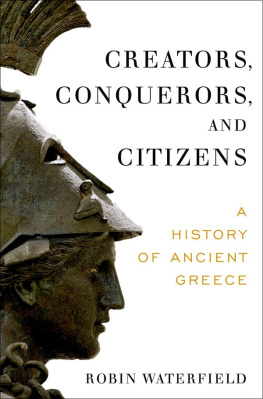
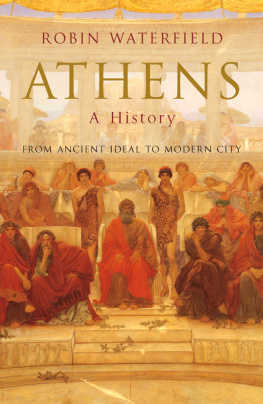
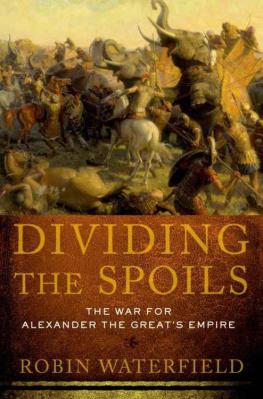
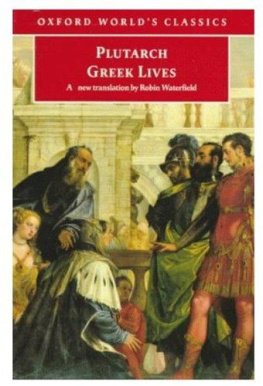


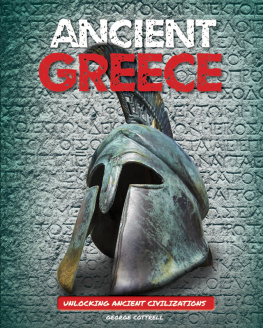
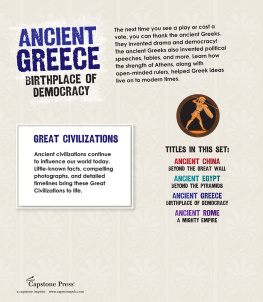
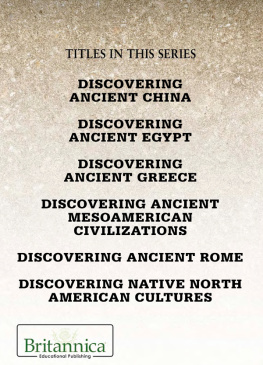
![Michael Lovano - The World of Ancient Greece: A Daily Life Encyclopedia [2 Volumes]](/uploads/posts/book/268736/thumbs/michael-lovano-the-world-of-ancient-greece-a.jpg)

